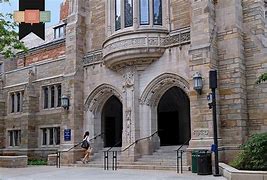The University of Pennsylvania (Penn) is a prestigious institution that stands at the intersection of tradition and innovation. As one of the eight Ivy League schools, Penn is renowned for its academic rigor, groundbreaking research, and commitment to fostering leadership. Founded in 1740 by Benjamin Franklin, it has since evolved into a world-class university, with a legacy of academic excellence and a forward-thinking approach to education.
In this detailed exploration, we will dive into the rich history, academic offerings, research contributions, campus culture, and global impact of the University of Pennsylvania. Ivy League Innovation: University of Pennsylvania – Academic Excellence, Research, and Global Impact a symbol of “Ivy League Innovation,” Penn integrates a historical commitment to knowledge with cutting-edge advancements, creating an academic environment that fosters both intellectual growth and real-world impact.
A Rich Legacy: Founding and Early History
The University of Pennsylvania was established by Benjamin Franklin, a polymath whose vision for the university was grounded in practical education, focusing on preparing students for active participation in society. Franklin’s philosophy of education was innovative for its time; he believed that learning should not only be theoretical but also practical, teaching students how to apply knowledge to solve real-world problems.
Penn was officially chartered in 1740, making it one of the oldest universities in the United States. It is also one of the first to offer a curriculum that combined both liberal arts and professional studies. This combination has remained a hallmark of the institution, allowing students to pursue diverse academic interests while preparing for leadership roles in their careers.
Through the centuries, Penn has been at the forefront of academic and social innovation, contributing to the development of fields ranging from business to medicine to the humanities.
Academic Excellence and Interdisciplinary Education
Penn’s commitment to excellence in education is reflected in its wide range of academic programs and disciplines. The university offers more than 90 undergraduate programs across 12 schools, including its highly regarded Wharton School of Business, the Perelman School of Medicine, the School of Engineering and Applied Science, and the School of Arts and Sciences.
Undergraduate Programs
The undergraduate curriculum at Penn is designed to encourage intellectual curiosity and foster interdisciplinary learning. Students are required to take courses in a variety of fields, including the humanities, natural sciences, and social sciences. This well-rounded approach helps students develop critical thinking skills that are essential for navigating the complexities of the modern world.
One of the university’s most notable features is the ability for students to combine different fields of study. Penn encourages students to pursue dual degrees, minors, or certificates, allowing them to tailor their education to their individual interests and career goals. The School of Arts and Sciences offers numerous opportunities for interdisciplinary study, while Wharton students can take courses across different Penn schools, integrating business with fields like healthcare, engineering, and law.
Graduate and Professional Programs
Penn’s graduate programs are similarly distinguished, offering world-class education in fields ranging from law and business to medicine and engineering. The Wharton School of Business, consistently ranked as one of the top business schools globally, has produced some of the world’s most influential business leaders and entrepreneurs. Wharton’s unique approach to education emphasizes leadership, entrepreneurship, and global strategy.
The Perelman School of Medicine is another top-ranking program, leading advancements in medical research and education. The school has been instrumental in pioneering medical treatments, and its faculty members are frequently at the forefront of healthcare innovation.
Penn also offers prestigious graduate programs in education, law, nursing, engineering, and public policy, providing students with opportunities to gain expertise and engage with cutting-edge research in their fields.
Innovation and Research Contributions
The University of Pennsylvania is synonymous with groundbreaking research, driven by its commitment to addressing global challenges and advancing knowledge. Penn has a rich history of innovation, producing pioneering research that has shaped multiple industries.
Research Institutes and Centers
Penn’s research infrastructure is vast and diverse, with more than 100 research centers and institutes that span multiple disciplines. The university’s Penn Institute for Biomedical Informatics is a leader in the field of health technology, using data science to improve patient care. The Penn Neurodegeneration Research Center and the Abramson Cancer Center are globally recognized for their innovative approaches to understanding and treating diseases.
The Penn Engineering School is known for its focus on interdisciplinary research, particularly in fields such as robotics, artificial intelligence, and nanotechnology. Penn’s Wharton Risk Management and Decision Processes Center conducts groundbreaking research in areas like cybersecurity, climate change, and financial markets.
Notable Research Contributions
Over the years, Penn’s faculty and researchers have made significant contributions to numerous fields. In the realm of technology, Penn Engineering played a key role in the development of the internet’s infrastructure, including the first broadband communication technology. In medicine, Penn researchers have been pioneers in stem cell research and gene therapy, Ivy League Innovation: University of Pennsylvania – Academic Excellence, Research, and Global Impact they have contributed to the development of treatments for diseases such as cancer and heart disease.
One of the most notable research advancements at Penn is the work of Carl June, a professor at the Perelman School of Medicine. His groundbreaking research in immunotherapy has revolutionized the treatment of cancer, particularly through his work on CAR T-cell therapy, which has shown promising results in treating blood cancers such as leukemia.
Campus Culture and Student Life
Penn’s campus culture is dynamic, with a strong focus on inclusivity, engagement, and leadership. Situated in the heart of Philadelphia, Penn provides students with access to a vibrant city filled with opportunities for internships, networking, and social engagement. The university’s commitment to diversity and inclusion is reflected in its student body, which hails from all over the world, representing a variety of backgrounds, cultures, and interests.
Diversity and Inclusion
Penn actively promotes diversity on campus through programs such as the College House System, which brings together students from different backgrounds to live and work in close proximity. The Center for Africana Studies, the LGBTQ+ Center, and the Makuu Black Student Center are just a few of the organizations at Penn that work to foster a sense of community and provide support for underrepresented students.
In addition, Penn offers resources such as mentorship programs, affinity groups, and career development services to ensure that all students have the opportunity to succeed.
Campus Organizations and Extracurricular Activities
With more than 500 student organizations, Penn offers a vast array of extracurricular activities. Students can participate in academic clubs, cultural organizations, service groups, and performance arts groups, among others. Penn also boasts an active Greek life and a rich tradition of student-led initiatives, with many students engaging in social activism and community service.
Athletics play an important role at Penn as well. The university’s athletic teams, known as the Penn Quakers, compete in the Ivy League, and the university has a strong tradition in sports such as track and field, football, and lacrosse.
Global Impact and Alumni Network
The University of Pennsylvania’s impact extends far beyond its campus, influencing global business, politics, healthcare, and culture. Penn’s alumni network is one of the most extensive and influential in the world, with graduates excelling in a variety of fields.
Notable Alumni
Penn’s alumni include world leaders, innovators, entrepreneurs, and cultural icons. Some of the most notable alumni include:
- Donald Trump, 45th President of the United States
- Elon Musk, CEO of SpaceX and Tesla
- Warren Buffett, Chairman and CEO of Berkshire Hathaway
- Sylvester Stallone, Actor and Director
- Jon Stewart, Comedian and Television Host
These individuals, along with many others, highlight the diverse and far-reaching impact of Penn’s education.
Global Outreach and Partnerships
Through partnerships with institutions worldwide, Penn engages in global research initiatives, offering students and faculty the opportunity to collaborate with scholars across continents. The university’s Penn Abroad program allows students to study in various locations, providing them with international experiences that prepare them for a globalized workforce.
Commitment to Social Responsibility and Sustainability
In addition to its academic and research prowess, the University of Pennsylvania is committed to addressing global challenges, including sustainability and social responsibility. Penn has implemented several initiatives to reduce its environmental impact, including investing in green infrastructure and pursuing renewable energy solutions.
Sustainability Initiatives
The university has set ambitious goals to achieve carbon neutrality by 2042. Penn’s commitment to sustainability is seen in initiatives such as its Green Fund, which supports student-led projects focused on environmental conservation. The Penn Environmental Sustainability Advisory Committee works to integrate sustainability into every aspect of university life, from research to operations.
Conclusion
The University of Pennsylvania exemplifies “Ivy League Innovation.” With its rich history, diverse academic offerings, groundbreaking research, Ivy League Innovation: University of Pennsylvania – Academic Excellence, Research, and Global Impact vibrant campus culture, Penn is at the forefront of higher education. By blending a commitment to intellectual rigor with a forward-thinking approach to education and research, Penn continues to produce leaders who will shape the future. Whether in business, healthcare, engineering, or the humanities, the university’s global impact ensures that it will remain a beacon of excellence and innovation for generations to come.














